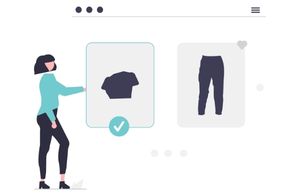Or go to our Shopify Theme Detector directly
Do You Need to Register a Dropshipping Business?
Last modified: April 18, 2024

Do you need to register a dropshipping business? This is a tough question that many people answer when they’re starting a new Shopify dropshipping business. And it can have more to do with the personal preference of the business owner rather than the legal requirement.
| # | Name | Image | |
|---|---|---|---|
| 1 |

|
AutoDS
|
|
| 2 |
|
Spocket-World Wide Suppliers
|
|
| 3 |

|
Syncee - Global Dropshipping
|
|
| 4 |

|
Printful-Sell Printed and Embroidered Items
|
|
| 5 |

|
Sup Dropshipping
|
|
| 6 |

|
DSers-AliExpress Dropshipping
|
|
| 7 |

|
Zendrop - Dropshipping & POD
|
|
| 8 |

|
Dropshipman: Dropshipping & POD
|
|
| 9 |

|
AO - AliExpress Dropshipping by FireApps
|
|
| 10 |

|
Trendsi - Fashion Dropshipping
|
|
| 11 |

|
CJdropshipping
|
|
| 12 |

|
DropCommerce
|
|
| 13 |

|
Modalyst-Sell Brand Name Products
|
|
| 14 |

|
Ali Orders-Fulfill Orders Easily
|
|
| 15 |

|
Blanka - Private Label Beauty
|
|
| 16 |

|
Dropified-Automate Your Dropshipping Business
|
|
| 17 |

|
ProductPro
|
|
| 18 |

|
Spreadr App
|
|
| 19 |

|
Importify
|
|
| 20 |

|
Inventory Source
|
|
| 21 |

|
Roxie
|
|
| 22 |

|
Fulfillbot: Dropshipping Agent
|
|
| 23 |

|
KakaClo
|
|
| 24 |

|
Oberlo-Get the Best Produtcts for Your Site
|
|
|
Show More
|
|||
What Are the Legal Responsibilities?
When you start running a new Shopify business, you can start thinking about the registration of that business. In some cases, and some countries/states, you might need to tell the local or national government responsible for tax that you’ve started a new business. If you’ve not been in business before, some will register you as a new business and issue you with ways to calculate and report earnings for tax purposes. Automating dropshipping with Shopify can streamline your operations, freeing up time to focus on managing your business’s legal and tax obligations effectively.
You might also need to register your dropshipping business if you sell internationally, or you sell within certain areas because the government wants to keep records on who is trading. Though, this is rather dependent on the local laws, and you should contact your local Government business advice line to check with them.
Corporate Structure
Something that you should really consider is what business structure that you would like to operate under. For instance, those who are operating as sole traders have few registration requirements. They also have the easiest tax forms to complete. However, some businesses are large and require additional protection. For this, you might want to register your business as a Limited Liability Company (LLC). These companies are afforded better protection to the personal assets of the owner.
However, there is no legal requirement for the LLC. It is a personal choice. When you’re starting out, you might want to try out the business first and see if there is any chance of success. Shopify gives you a 3-day trial, and most stores make their first sale within two weeks to two months.
And some areas, like in the UK, allow you to delay your registration for three months after you’ve earned your first sale. Therefore, in some territories, you can establish your company, brand it and build it up and then start the registration period after the sales have started to come through, making money before officially registering your business.
In some areas, revenues under a certain amount are also not included. So if your business makes a couple of sales, but is not a complete success, then you can close it down without having to register it. This is harder if you’re an LLC, as there is a lot of paperwork involved, especially when it comes to paying taxes on your earnings.
Conclusion: Do You Need to Register a Dropshipping Business?
Do you need to register as a dropshipping business? There is nothing different about running a dropshipping business than any other. You don’t need to register the business unless you’re acting as a self-employed person, and this can be easy to do as you just contact your local tax office. If your business becomes successful, you might want to create an LLC, but speak to your local tax accountant before taking that step.
Keep on reading about Dropshipping on Shopify. For example Do You Need an LLC for Dropshipping? and How Much Can You Realistically Make Dropshipping?. Both part of our Shopify Dropshipping Apps and Shopify Dropshipping Themes lists. You can read more about Dropshipping on Shopify with our ultimate Dropshipping on Shopify guide.
-
Can I operate a dropshipping business under my personal name?
Operating a dropshipping business under your personal name is possible, but registering a business name offers more professionalism and legal protection.
-
Are there different registration requirements for dropshipping on platforms like Shopify?
Registration requirements for dropshipping on platforms like Shopify may vary based on your business size and location. Check platform policies and local laws.
-
What are the risks of not registering a dropshipping business?
Not registering a dropshipping business can lead to legal issues, tax penalties, and limited business opportunities. Compliance is key for long-term success.




 PageFly Landing Page Builder
PageFly Landing Page Builder  Shopify
Shopify  SEMrush
SEMrush  Website Maintenance
Website Maintenance  UpPromote
UpPromote